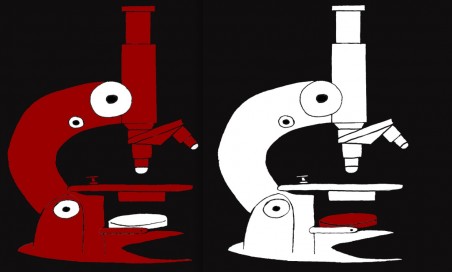The Supreme Court is due to hear an appeal tomorrow relating to a refusal by the police to disclose evidence to assist in an attempt to overturn a conviction which could leave victims of miscarriages of justice in a Catch-22. If the appeal is unsuccessful, then the highest court in the UK will send a signal to police forces up and down the country to withhold material from those claiming to be innocent which, in turn, could prevent any challenge to the safety of that conviction.
The appeal concerns the case of Kevin Nunn and has serious implications for lawyers, journalists and families seeking to investigate alleged miscarriages of justice. Nunn was convicted in 2006 of murdering his former partner Dawn Walker.
In March 2012, the Divisional Court upheld a refusal by Suffolk Police to allow access to case material so it could be tested (at the family’s expense) using techniques not available at the trial. Critically, the court ruled the state’s general duty ‘to provide disclosure… ceases on conviction’.
Kevin Nunn, who claims to be innocent, is serving a minimum of 22 years for the murder of his former partner, Dawn Walker. The prosecution alleged that Nunn killed Walker after a row, later burning her body and abandoning it near the river. He claimed that she was the victim of another man with whom she had had a relationship.
The family had approached Suffolk police with a request to test material, at their expense, using techniques not available at the time of his trial – in particular, in relation to a sperm sample found on Walker which, it was argued, could not have been linked to Nunn as he had undergone a vasectomy. “Technology has advanced since Kevin’s trial and the time to retest is now,” Kevin Nunn’s sister Brigitte Butcher said this week.
“Suffolk Police argue that releasing case material would place undue pressure on stretched police budgets across the country,” comments Louise Shorter, of Inside Justice which investigates miscarriages of justice. “This is nonsense. Most major forces have traditionally granted access to exhibits. It’s only a recalcitrant few like Suffolk Constabulary who are out of step. This raises the question: what have they got to hide?”
If the Supreme Court uphold Suffolk Police’s refusal, other forces will be obliged to follow suit making it even harder for wrongly convicted prisoners to prove their innocence.
Louise Shorter
Shorter, a former BBC Rough Justice producer, reckons that some 18 innocent persons were exonerated after investigations by the programmes and “in most of these cases, we had access to material held by the police and prosecution”.
Catch-22
The campaigner Paul May said that the Divisional Court had cited the Criminal Cases Review Commission’s powers as “an additional safeguard”. Under the Criminal Appeal Act 1995, section 17 the CCRC has powers which enables it to force public bodies to release documents and materials in connection with their investigations.
“But the CCRC only usually mounts full investigations if fresh evidence or other substantial matters are drawn to their attention,” May said. “Innocent persons are set a further Catch-22 task by the court upholding the attorney general’s guidelines that evidence casting doubt on convictions must be unearthed before any post-conviction duty disclosure arises.”
Dawn Walker’s sister, Sheena Walker, told the East Anglian Daily Times that outcome of the hearing would have no effect on Nunn’s conviction. “Nunn was convicted on circumstantial evidence that was so great and was enough to convince a jury and secure his conviction… Any new forensic evidence will not clear him of his crime, as it would not have been a convicting factor,” she said. “The information surrounding the sperm heads was heard by the jury who found Nunn guilty and was not a convicting factor so can not result in an appeal process.”
“If Nunn’s family succeed in court it will not set him free and will only unlock the floodgates for other convicted killers and rapists etc to request all information and evidence held against them to be released to them so as to be re-investigated,” she said.
My understanding is that every police force will then have to fund a department who will have to deal with a supply and demand of this information which will cause a further strain on an already tight police budget for every area.
Sheena Walker
Louise Shorter said that in the past police forces have co-operated with investigations. “Cases have been dealt with on a piecemeal basis. Some forces have been better than others. The danger is that the Supreme Court is going to send out a message to police forces in the future who have previously had no difficulty in cooperating because they are confident of the conviction that they have got.”
Such co-operation from police forces has been crucial to the work of InsideJustice and anyone investigating alleged miscarriages. “I have been involved in cases where we have had the entire crime scene exhibits released from the police archives into our laboratory,” Shorter said. “We have had new work done on them – and that has led to convictions going back to the Court of Appeal and, in some cases, the convictions have been overturned on an individual basis.”
“Costs alone shouldn’t be a barrier to justice,” Shorter added. “Historically, that hasn’t been an issue because, if public funding is not available, then on some occasions investigative programs such as Rough Justice and Trial & Error have come forward and on occasions families have raised funds and paid privately.”








